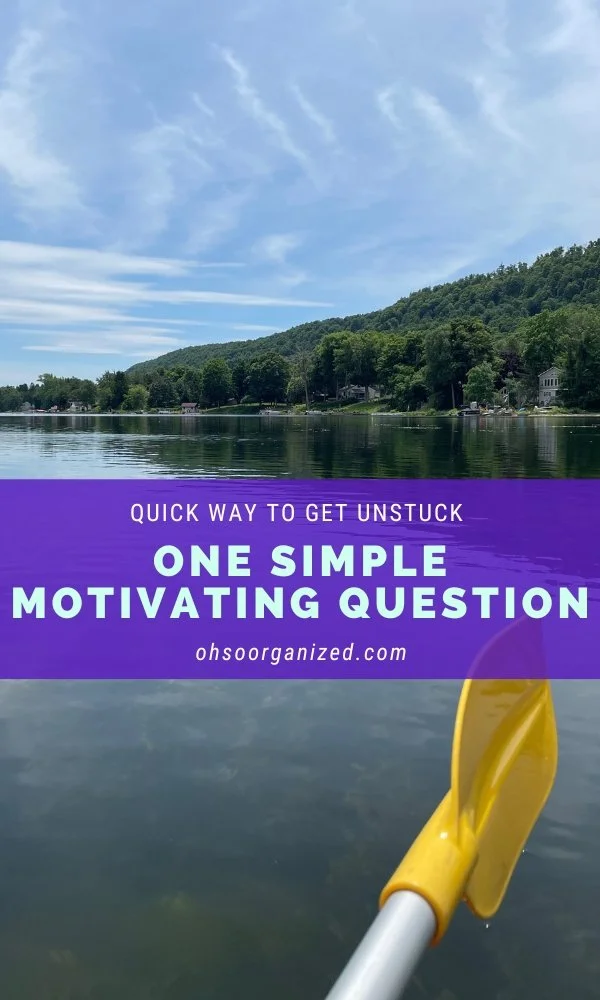Are there times when figuring out your next step is challenging? Maybe you need more information, fear making mistakes, or feel overwhelmed with decision-making.
If the next step is a one-and-done task, it can seem more manageable. However, the next step can feel elusive and unclear when working on a long-term project or making a significant life change.
There are many ways to approach finding next, which I’ve written a lot about. Some of these ideas to get unstuck and determine what’s next included:
Releasing your negative list
Making time to regroup
Focusing on “small awe”
Working The Progress Cycle
Taking small steps
Engaging in mindfulness
Recently, I discovered an inspired question, which approaches next in a refreshing way.
Making Next Transformational
In James Clear’s “3-2-1 Thursday” newsletter, he posed this thought-provoking question:
“What single habit if implemented consistently for the rest of this year, would transform your life the most?”
I love this question for three reasons:
Reason 1. The query focuses your attention to developing just one new habit. Most of us tend to take on too much at once, making it difficult to make progress on anything.
Reason 2. The question encourages you to consider which habit change would have the most impact. You are investing your time in doing something different. Selecting the habit that will be most transformative will give you the most for your efforts.
Reason 3. The ask supports consistent, small efforts that will result in monumental, positive change over a specific, doable time frame, “rest of this year.”
““What single habit if implemented consistently for the rest of this year, would transform your life the most?””
What Will You Invite In?
Let’s remember and imagine.
Remember - Think about a time you successfully developed a new habit. What did you learn from that experience? Is it a habit you still engage in? What positive affect resulted?
Imagine - Future think to the end of this year. What positive change happened as a result of your consistent habit? Which area of your life did it affect? Was it related to your relationships, finances, health, work, home, personal development, or another category?
As you consider what new habit to adopt, remember that your future self will thank you.
One Significant Habit Change
I’ve changed many habits in my life, including my reading habits. I love reading and typically do so at night before bed. However, that’s also when I’m most tired. When I’m sleepy, I read more slowly, read fewer pages because I drift off, and don’t retain the material as well.
One morning, after meditating, I changed things up and read before getting out of bed. I was motivated to finish the book, which I had almost completed the night before. Reading while fully awake was such an uplifting experience that I integrated this new habit into my morning routine.
It’s been amazing! Not only am I enjoying and assimilating what I’m reading even more, but I’m also reading twice as many books. This habit supports my thirst for learning and understanding, which I highly value.
What area of your life would you like to change? What new habit can enhance your life? What will be next for you? I’d love to hear your thoughts. I invite you to join the conversation.
How Can I Help?
Do you want support organizing, developing new habits, or figuring out your next step? I’d love to help! Virtual organizing is an extraordinary path forward – local feel with a global reach.
Please schedule a Discovery Call, email me at linda@ohsorganized.com, or call 914-271-5673. Change is possible, especially with support.










